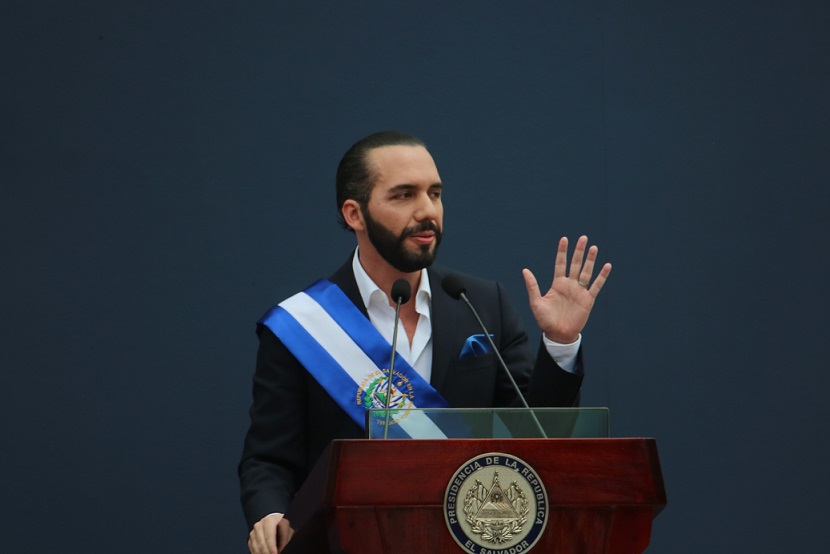A poll conducted last January confirmed that the popularity of El Salvador’s president, Nayib Bukele, would allow him to be re-elected, regardless of doubts about whether his re-election is constitutional or not.

According to the results, Bukele remains high, registering 8.37 on a scale of one to 10, and in general terms, the New Ideas Party leads in voter sympathy with 33.9%.
The figures from the José Simeón Cañas Central American University (UCA) are not definitive, as there is still almost a year to go until 4 February 2024 when Salvadorans will elect the next president.
The governing party is more than 30 points ahead of the second-placed, the Nationalist Republican Alliance (Arena), with 2 per cent, and the third-placed, the Farabundo Martí National Liberation Front (FMLN), with 1.3 per cent of respondents. However, the Supreme Electoral Tribunal (TSE) is due to issue instructions for the registration of President Bukele’s candidacy in the coming days.
Since he announced his decision to run for re-election, controversy has raged. There is no shortage of those who say that this is unconstitutional, just as there is no shortage of favourable decisions by the TSE, whose magistrates were appointed by the government itself, certifying this right.
There are many questions, but the main ones revolve around whether Bukele should leave the presidency and compete in the internal elections of the Nuevas Ideas (New Ideas) Party (NI).
 The deadline for internal party elections to choose their candidates is 5 July, and many are wondering how the President of the Republic will participate in these elections.
The deadline for internal party elections to choose their candidates is 5 July, and many are wondering how the President of the Republic will participate in these elections.
Others wonder whether Bukele will leave office six months earlier to have the right to run and win another term in office starting on 1 June 2024.
This is because Article 152 of the Constitution states that Bukele cannot be a candidate for the presidency “within the last six months prior to the beginning of the presidential term”, which means that he must leave office before 1 November of this year. These are “interpretations” to be made by the magistrates of the TSE, hence the expectations created by the instructions issued by the TSE.
According to TSE magistrate Noel Orellana, this is a new issue and they have been asked “to draw up instructions on these issues, we are about to conclude it and I would not like to get ahead of myself”.
If Bukele is the candidate, Vice President Félix Ulloa will have to assume the office of president until the elections are held and the next head of state is sworn in, which disqualifies him from running for re-election.
Another question that arises is who will accompany the president in the race to govern for another five years. In four months’ time it will be known who will be Bukele’s contenders and his running mate.
 Both Arena and the FMLN face a complex situation and are at the extremes of the political spectrum.
Both Arena and the FMLN face a complex situation and are at the extremes of the political spectrum.
At its National Convention on 3 December, the FMLN made it clear that it would not make alliances with political parties such as Arena, but it did not rule out joining forces with social organisations such as the so-called Popular Resistance and Rebellion Bloc (Bloque de Resistencia y Rebeldía Popular). This grouping is gaining ground and could be a considerable support for any force that tries to confront Nuevas Ideas and Bukele. There is also the centre-right group ‘Vamos’, whose only representative in the Legislative Assembly, Claudia Ortiz, is said to be a serious potential candidate to challenge Bukele, but does not have sufficient support among the population. PL
(Translated by Cristina Popa – Email: gcpopa83@gmail.com) – Photos: Pixabay












.jpg)












